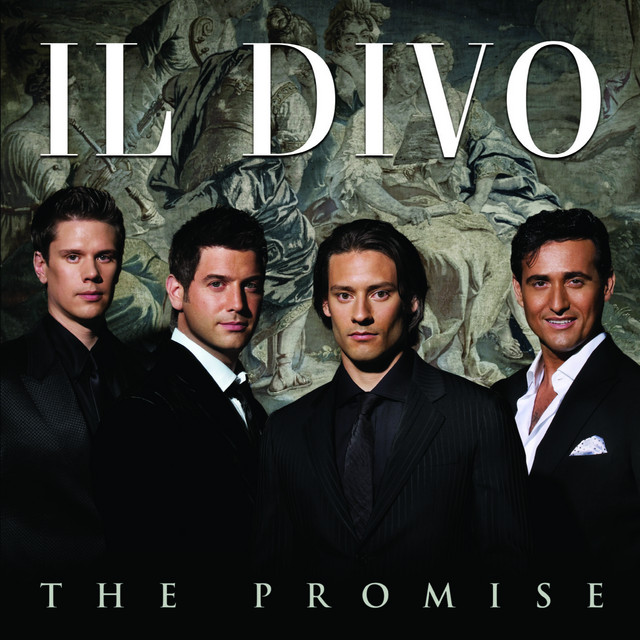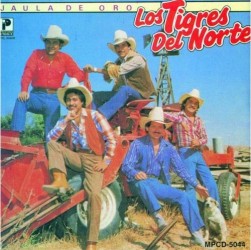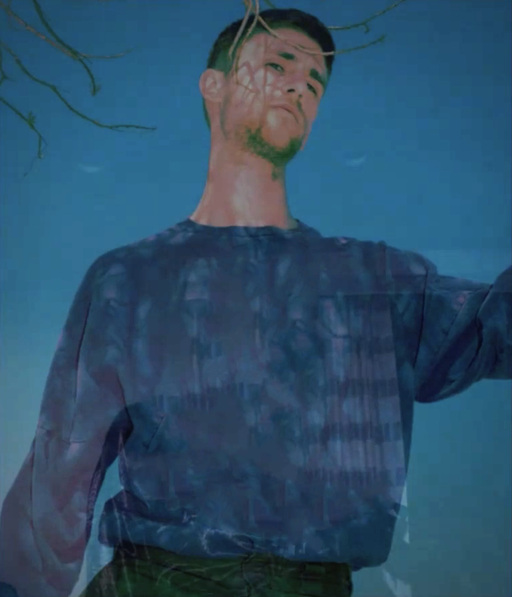The sounds of their house, Latin folk, maddening lullabies, heavy metal, and R&B soul come together to make up the soundtrack of Kimberly’s life. For her, music has always been a help with feelings of isolation and loneliness. Using music, Kimberly walks readers through her journey of self-discovery growing up from the age of four to sixteen. From her parents’ absence at an early age, to feelings of rejection after the birth of her two younger siblings, to navigating a predominantly white school, music has helped her (for better or for worse) connect with people around her. Ultimately, with the help of music, Kimberly is able to come to terms with her past and begin to heal. — Fhrynée Lambert ’24, editorial assistant
Escaping Loneliness Through Music
Kimberly By Goytia ’26

In a tiny room, with the sizzles and pops of a static-covered TV, the muffled voice of a gray rabbit spoke: “Eh, pardon me Doc. Fresh outta carrots.” My sleepy eyes stared at the rabbit as my small feet kicked impatiently. The tick of a glittery pink clock bounced between walls while my eyebrows started to furrow. As the moon crept into the sky, the combined sound of crickets and cicadas began to play. Static, rabbit, clock, crickets, and cicada. This was my first song.

The atmospheric sounds I heard around my house became my music. It was the rustle of trees, the buzz of my CD player, or the drips from a faucet. As a four-year-old, I did not understand why I paid so much attention to and romanticized the dull sounds in my house. Was it creativity? Was it boredom? I guess it could have been both, but in retrospect, it all stemmed from one thing: loneliness.
I grew up in a house where loneliness was a constant part of my childhood. For years, both of my parents were just hazy shadows I saw at my door before falling asleep. I did not know why they were never home. All I knew was that I was alone, and the sounds of my house were the only things that comforted me. Although I wished that I was listening to my parents’ conversations or what I imagined their laughs to be, the sounds of my home made me feel like there was a greater being watching over me in their absence. It was a being that, just like me, was constantly ignored and forgotten unless someone paid close attention to what it said through ordinary sounds. Every day, I intently listened to my home so that it knew someone acknowledged it, and over time, my one-sided attentiveness made me believe that perhaps it heard me too. This exchange of sounds and acknowledgement that we were both in this world together felt like I had a friend to share my time with. Yet no matter how I tried to comfort myself by becoming friends with my home, the fact still stood that I was utterly alone. This all-consuming solitude influenced how I interacted with music for the rest of my life. The whimsical and lifelike qualities that I infused into the sounds of my home were not born out of a need for fun; it was to know that even in this vast loneliness, the sounds of the world knew that I heard them, and in exchange, they heard me.

The routine of listening to my home to fill the vacancy in my heart continued until the age of six. Before that age, I did not pay much attention to TV apart from Looney-Tunes or art-focused programming. One day, though, I was particularly bored and decided to surf through different cartoon channels. Eventually, I stumbled on an episode of The Flintstones. As I watched the show, I realized how often both or at least one of the parents was with their child. The children were rarely without their parents, which meant they did not feel alone. The illusion I had created of companionship from my home began to break apart as I realized how unusual my reality was in comparison to cartoon families. The once-comforting sounds had now become alien to me. The creaks of doors and clangs from dishes no longer comforted the ache in my heart. They irritated me. Why was I alone? Why were the sounds in this old house our only song? I prayed for answers, and pleaded for hope, but every night I heard the same nocturnal chorus alone in my room.
 I do not really remember the exact day, or even why, my parents finally had new-found time for me. All I know is that it was 2009 and I saw them standing at the door earlier in the day than I was accustomed. Even with all my longing and pleas to God, I was afraid. Afraid of whether I would know my parents due to how estranged it felt like we had become. Afraid of whether they would even recognize me under a bright light without the shadows of the night distorting my face. So, on the first day of their newly-expanded time at home, I ran and hid from their strange new attention towards me. As my parents started scurrying around the house calling my name, I closed my ears shut. I did not want to hear those new and odd sounds in this house. Eventually, my mom found me hidden away in a closet. Slowly, she picked me up and carried me to the living room. Once she set me down next to my dad, she walked over to the static-covered TV and turned on the telenovela channel. The sizzles and pops of static ceased as a new song took control, “Sortilegio de Amor” by Il Divo. The fear I had melted away as I stared in awe at how close I was to my parents for the first time, and I allowed the new feeling of warmth to surround me. That house which I had started to hate now had a new song and for a moment I was no longer alone.
I do not really remember the exact day, or even why, my parents finally had new-found time for me. All I know is that it was 2009 and I saw them standing at the door earlier in the day than I was accustomed. Even with all my longing and pleas to God, I was afraid. Afraid of whether I would know my parents due to how estranged it felt like we had become. Afraid of whether they would even recognize me under a bright light without the shadows of the night distorting my face. So, on the first day of their newly-expanded time at home, I ran and hid from their strange new attention towards me. As my parents started scurrying around the house calling my name, I closed my ears shut. I did not want to hear those new and odd sounds in this house. Eventually, my mom found me hidden away in a closet. Slowly, she picked me up and carried me to the living room. Once she set me down next to my dad, she walked over to the static-covered TV and turned on the telenovela channel. The sizzles and pops of static ceased as a new song took control, “Sortilegio de Amor” by Il Divo. The fear I had melted away as I stared in awe at how close I was to my parents for the first time, and I allowed the new feeling of warmth to surround me. That house which I had started to hate now had a new song and for a moment I was no longer alone.
After that evening, my parents made more time for me. Nights of listening to crickets were no more, but a new musical collaboration was born. When they got off work, our house lit up in frenzied noise. While my dad blasted the band Los Tigres del Norte my mom played “Sortilegio de Amor,” and I drummed spoons on the kitchen table. Three vastly different musical worlds of country, ballad, and environment collided to create a song that represented our family. We sang and danced around the house as the musical blend became more chaotic. For a moment, it was as if nothing else existed outside of our home. The cars became silent, the cicada song died, and the trees stopped rustling. During those special nights, it felt like for a few hours the universe stopped to listen to our music.
By the later end of ages six and seven, both of my siblings were respectively born, and life shifted again. Our chaotic song died down and was replaced by lullabies. Some children might love the idea of having new kids and music added to their family, but I despised it because it made me realize how easily those who were once attentive towards me could completely forget that I existed. Every time I set foot into my mom’s car, all I heard was Betty Noyes singing “Baby Mine” from the soundtrack to Walt Disney’s Dumbo, while my siblings slept in the back. I understood that it helped my siblings sleep, but God, it irritated every cell in my body. Eventually, the music moved from the car to our home and became virtually inescapable. I could not exist without hearing “Baby Mine.”
replaced by lullabies. Some children might love the idea of having new kids and music added to their family, but I despised it because it made me realize how easily those who were once attentive towards me could completely forget that I existed. Every time I set foot into my mom’s car, all I heard was Betty Noyes singing “Baby Mine” from the soundtrack to Walt Disney’s Dumbo, while my siblings slept in the back. I understood that it helped my siblings sleep, but God, it irritated every cell in my body. Eventually, the music moved from the car to our home and became virtually inescapable. I could not exist without hearing “Baby Mine.”
For six more years, the lullabies continued to play and became a constant fixture in our lives. My pleas to return to the chaotic musical world that my parents and I had created kept getting silenced to make more space to soothe my siblings with that maddening song. I thought that as my siblings aged, my parents would finally make more time for me, but that hope faded away as they became even more preoccupied with them. Fear finally began to take hold of me as I felt more isolated from my parents. At first, I let the lullabies play with no interruptions, but when I finally tried to switch out the CD to try and regain my place in our family, my mom yelled. There was no room for more music and no room for me. “I do not want to be alone again,” echoed in my mind as anger started to seethe. In a blind rage one day, I grabbed the CD that contained “Baby Mine” and shattered it. “To hell with lullabies and ‘Baby Mine’ by Betty Noyes,” I thought. Exhilaration pumped through my veins as I felt free from stupid lullabies, but the celebration was cut short by the disapproving screams from my parents. That day I felt like an enemy to our family and loneliness grabbed ahold of me once more.
The feeling of rejection from my family could not have happened at a worse time. I had just turned thirteen and it was nothing short of a nightmare. The transition into seventh grade was a challenge and not having my family there to support me made it harder. Being a Latina who attended a majority-white southern middle school led to both social and cultural isolation. I became lost in the ever-growing void of loneliness that was forming around me. I wanted to be heard, so I ran back to what once brought me comfort: my parents’ music.
 My YouTube search history was riddled with the songs my parents and I used to adore. I thought that if I listened to our music then maybe, just maybe, I could feel heard again. I desperately craved to feel something, anything, but everything failed. Every time I heard the accordion from Los Tigres del Norte or the charming piano from “Sortilegio de Amor” my depression was exacerbated. Instead of remembering the happiness we once felt, my mind pounded with their disapproving screams and the reminder that I had lost my grasp on our once-loving relationship. I fell deeper into the void. If this did not cure me then what could? Would I forever be stuck in this abyss of solitude? Those questions swirled around my head as I grew more detached from my parents’ music. I forced myself to keep listening in hopes that maybe the answer lay in a different song, but I only became more frustrated. One after another, each song I heard boiled my blood until I finally let out, “This is considered music? This stinks!” I began to hate my parents’ songs for the comfort they no longer brought me. Not only was I rejected by my parents and school, but now the music that I once loved hated me too. From then on, I named myself a complete enemy of country and ballads. I did not want to be reminded of a past that buried me deeper into loneliness. I wanted an escape.
My YouTube search history was riddled with the songs my parents and I used to adore. I thought that if I listened to our music then maybe, just maybe, I could feel heard again. I desperately craved to feel something, anything, but everything failed. Every time I heard the accordion from Los Tigres del Norte or the charming piano from “Sortilegio de Amor” my depression was exacerbated. Instead of remembering the happiness we once felt, my mind pounded with their disapproving screams and the reminder that I had lost my grasp on our once-loving relationship. I fell deeper into the void. If this did not cure me then what could? Would I forever be stuck in this abyss of solitude? Those questions swirled around my head as I grew more detached from my parents’ music. I forced myself to keep listening in hopes that maybe the answer lay in a different song, but I only became more frustrated. One after another, each song I heard boiled my blood until I finally let out, “This is considered music? This stinks!” I began to hate my parents’ songs for the comfort they no longer brought me. Not only was I rejected by my parents and school, but now the music that I once loved hated me too. From then on, I named myself a complete enemy of country and ballads. I did not want to be reminded of a past that buried me deeper into loneliness. I wanted an escape.
Cradled by my bed with a bright screen light reflected on my face, my eyes gradually grew heavy, and my fingers prickled in numbness. Finding myself and being heard by the world did not matter anymore. I just wanted to sink into the enclosing misery, but before I knew it, my finger slipped and clicked on a new video. My ears were abruptly attacked by the heavy strums from an electric guitar. My senses vibrated awake as the drums intensified. The singer’s anger and powerful instrumentals infiltrated every cavity in my heart and chemically altered my brain. Years of rejection dissipated as I wildly danced to this new genre of music and screamed the lyrics of rage found in “Wolf in Sheep’s Clothing” by Set It Off. The world finally heard me again, and nothing could take that away from me.
my finger slipped and clicked on a new video. My ears were abruptly attacked by the heavy strums from an electric guitar. My senses vibrated awake as the drums intensified. The singer’s anger and powerful instrumentals infiltrated every cavity in my heart and chemically altered my brain. Years of rejection dissipated as I wildly danced to this new genre of music and screamed the lyrics of rage found in “Wolf in Sheep’s Clothing” by Set It Off. The world finally heard me again, and nothing could take that away from me.
Early one morning, surrounded by the judgmental eyes of my peers, I took out my phone. There lay my golden ticket, my key to freedom from that treacherous middle school. I connected my tattered headphones to my Samsung Galaxy S3 and plugged my brain into Set It Off’s world. Out of luck or bad karma, an emo kid noticed I had “Wolf in Sheep’s Clothing” on repeat. We fervently talked about more alternative bands and along the way maybe even trauma-bonded. I felt exhilarated by my newfound friend and for once I truly felt seen, even understood, by at least one person. Soon enough, I was initiated into the emo circle. At first it was fun being surrounded by people that related to my emotional pains, but soon I realized that instead of feeling better, my world became miserable. Initially they danced and sang Set It Off songs with me, but as our friendships deepened, they began to pick apart my musical taste. They started to make fun of my favorite band and question how emo they truly were as if they had an unspoken authority on the genre. Initially, I thought they were trying to educate me, but later I realized their intentions were darker. Since I wanted to stay friends with them, I took the punches and laughed along, but soon they turned their odd rage towards me. When we first became friends, they validated my pain and even related to it. Now, all they wanted to do was to make me feel crazy for claiming that my loneliness was painful by comparing it to their own struggles. Every day became a constant competition to see who had suffered more, and I was the one that was always attacked. Their unexpected vitriolic words towards the band I enjoyed and the belittling of how I felt was like a stab to my chest. I thought I had found the people who understood me, but they were now only using my pain as a punching bag to make themselves feel better and seem bigger than they really were. All the love and freedom I felt from Set It Off was now tainted by the vents and trauma created by those kids. Yet, no matter how much they hurt me or destroyed the music I loved, I continued to cling on to my supposed friends. Even if I was a sheep in wolf’s clothing surrounded by a crowd of vicious wolves, I could not let go. I just wanted to fit in somewhere, anywhere.

Finally, with all the strength I had left in my body, I clawed my way out of the miserable pit I had fallen into. I was now sixteen and more alone than ever before. The question of “where do I belong?” haunted my thoughts. I kept racking my brain for answers until suddenly my Spotify auto-played a song outside of my playlist. “Ipanema” by Still Woozy ft Omar Apollo began to play.
Maybe it was a musical hallucination, but I swore the song sounded familiar. As I broke apart every strum, beat, and vocal part I found a strange connection. The subtle metallic scratches vaguely sounded like the creaking door hinges in my old room. Electric guitar strums brought back memories of the acoustic strums in “Sin Ti” by Los Tigres Del Norte.
Synth piano shined just like the charming piano in “Sortilegio de Amor.” The distorted yet lulling “ooo” reminded me of the “ooo” in “Baby Mine.” All the songs I had once rejected found their way back into the forefront of my mind.
The memories of lonely nights, wild dancing, and calm car rides flashed before my eyes as tears began to fall. I realized that rejecting the past was only destroying my sense of self. Through the acceptance that my past had been mixed together to create the girl I know myself to be, I was finally able to find myself in a chaotic yet harmonious blend. This was where I truly belonged. It just took a push from the universe, and listening to my new favorite song “Ipanema,” to finally figure it out. I was finally able to find a more permanent yet small escape from loneliness, but this was not the end. It was only the beginning of my healing and finding true comfort with myself in a world that had constantly pushed me away.

Works Cited
(images)
Amiya Kahn-Tietz, album cover artist, Still Woozy, “Lately EP.” Still Woozy Productions Inc., 3 May 2019. Used for educational purposes.
“Annual Cicada.” Bruce Marlin. Licensed under CC BY-SA 2.5. via Wikimedia Commons.
“Clock.” Grzegorz W. Tężycki. Licensed under CC BY-SA 4.0. via Wikimedia Commons.
Cover image for Il Divo, “The Promise.” Syco Music / Sony BMG. 15 Jan 2018. Used for educational purposes.
Cover image for Los Tigres Del Norte, “Jaula de Oro.” Fonovisa, 1984. via Wikimedia Commons.
“Gryllus Campestris (Cricket).” Didier Descouens. Licensed under CC BY-SA 4.0. via Wikimedia Commons.
Logo for the television anthology series “The Bugs Bunny Show,” aired on ABC in 1960, Warner Brothers, Public domain, via Wikimedia Commons
“music score.” Reavel. Licensed under CC BY-NC-ND 2.0. via Wikimedia Commons.
Original theatrical release poster for Dumbo (1941). Disney Enterprises, Inc., via Wikimedia Commons.
“Still Woozy collage.” Licensed under CC BY-SA 3.0. via Wikimedia Commons.
“TV static.” Arnold Chao. Licensed under CC BY-NC 2.0. via Wikimedia Commons.
(song clips)
Il Divo. “Sortilegio de Amor.” YouTube, uploaded by KarelysBuhler, 30 May 2009, https://www.youtube.com/clip/UgkxPwcvf_vR4trX4E5i70vqXoxhP3A39IHz
Los Tigres del Norte. “La Mesa Del Rincón.” YouTube, uploaded by Los Tigres del Norte Oficial, 17 May 2019, https://www.youtube.com/watch?v=GVcK6k_w2_w.
Los Tigres del Norte. “Sin Ti.” YouTube, uploaded by Caguameando Ando, 7 March 2016, https://www.youtube.com/watch?v=Amqj_bPo_uY.
Noyes, Betty. “Baby Mine.” YouTube, uploaded by DisneyLyricSongs, 19 Jan 2013, https://www.youtube.com/watch?v=KRtIIqtJmCU
Set it Off. “Wolf in Sheep’s Clothing.” YouTube, uploaded by Equal Vision Records, 9 Aug 2023, https://www.youtube.com/watch?v=1KBfl-2mvxA.
Still Woozy. “Ipanema (feat. Omar Apollo & Elujay).” YouTube, uploaded by David Dean Burkhart, 2 May 2019, https://www.youtube.com/watch?v=q5eIX61KTBc.
Recent Comments